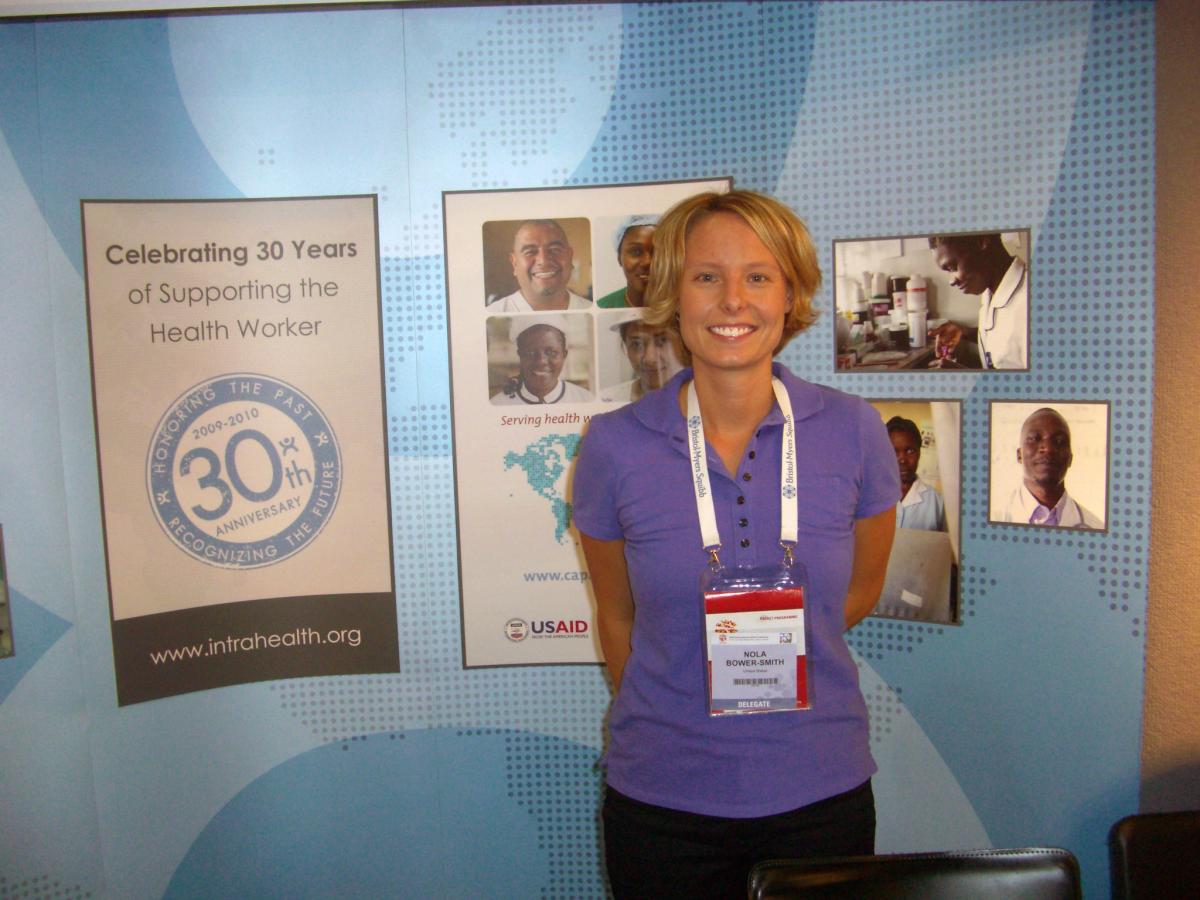
Bottlenecks: Addressing the AIDS Epidemic through Increasing Human Resources for Health
This post was originally published on the IntraHealth International blog.
 In a world where over 33 million people are living with AIDS it is imperative to address the human resources for health (HRH) crisis. The critical questions and solutions generated by this discussion are a step towards a world without AIDS.
In a world where over 33 million people are living with AIDS it is imperative to address the human resources for health (HRH) crisis. The critical questions and solutions generated by this discussion are a step towards a world without AIDS.
I had the opportunity to attend a panel at the International AIDS Conference in Vienna that focused on strategies for the HRH crisis. The panelists agreed that HRH is a critical problem, but one without an easy or quick solution. The lack of human resources, especially in areas most affected by HIV and AIDS, has made combating the disease a challenging and complex problem.
Tactics
Educational scale up, increasing quality of educational institutions, “sandwich” programs sending students abroad during clinical training, and social accountability tactics to encourage staying in-country to work were among suggestions posed by panelist Fitzhugh Mullan.
The solutions posed by Wendy Dhlomo-Pmhatswe focused on efficiency—leveraging the current system, using the current workforce more efficiently, improving quality and efficiency of care, improving delivery of care and intervention, identifying gaps, and in general working smarter verses harder.
Mit Phillips saw task shifting as the key element in mitigating the HRH crisis. Specifically she suggests improving systems to help eliminate unnecessary steps during patient visits, providing services outside traditional settings (community meeting points, community ART groups, drug dispensing directly to patients at their home) and starting patients on ART earlier to eliminate future health care visits.
Deborah von Zinkernagel gave an overview of the US Government’s response to the AIDS epidemic and the proposed use of the $32 billion of PEPFAR funding the US government has committed to date to the fight against AIDS. PEPFAR plans to support treatment for 4 million people, prevent 12 million new infections, and train 140,000 new health care workers to meet these goals.
Final thoughts
We cannot achieve universal access to HIV/AIDS prevention, treatment, care, and support with the health workforce we have now. The work of the experts on this panel is contributing to the momentum electrifying Vienna at AIDS2010 to create solutions to the HRH crisis.
Photo: Sarah Dwyer


